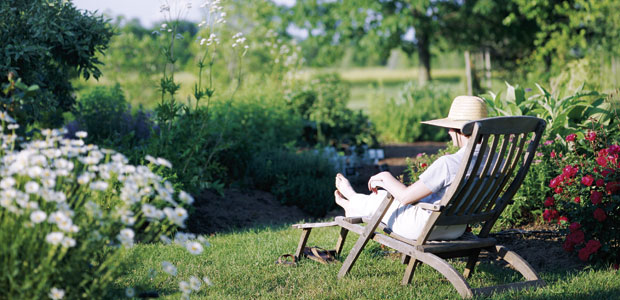Advertisement
Naturally Effective Pesticide Options
Statistics Canada figures from 2000 show that pesticide use in Canada rose over 400 percent between 1970 and 1995. Pesticides are classified either as repellants or insecticides; repellants drive insects away and insecticides actually kill the insect. The Dangers of Pesticides In 2002 University Medical Center pharmacologist Dr. Mohamed Abou-Donia warned against the topical use … Continued

Statistics Canada figures from 2000 show that pesticide use in Canada rose over 400 percent between 1970 and 1995. Pesticides are classified either as repellants or insecticides; repellants drive insects away and insecticides actually kill the insect.
The Dangers of Pesticides
In 2002 University Medical Center pharmacologist Dr. Mohamed Abou-Donia warned against the topical use of the DEET repellant. Dr. Abou-Donia discovered that long-term and frequent use of DEET caused neurons to die in regions of rat’s brains responsible for muscle movement, learning, focus, and memory.
The common practice of combining DEET with the insecticide permethrin also results in severe malfunctions. In 1996 Dr. Abou-Doni discovered that in hens, the combination of permethrin with DEET caused tremors and inability to walk, and he urged further review. In 2001 Health Canada conducted a re-evaluation but concluded that DEET concentrations of 30 percent or under are safe. Yet DEET has a dubious safety history: Human reactions including skin disorders, several cases of fatal encephalopathy in children, and neurological and heart problems in adults.
Like its health effects, DEET’S environmental effects are murky. According to America’s Centers for Disease Control, very few studies have examined the environmental effects of DEET.
Safer Alternatives
So why not select a safer repellant? The BC Centre for Disease Control says that lemon eucalyptus oil has been shown to be as effective as a 10-percent concentration of DEET, providing three-hour protection. In April 2005 the CDC added this product to its list of approved repellents. A 2002 study in the The New England Journal of Medicine found that its protective range spans from 60 to 217 minutes with an average bite-free zone of 2.1 hours. Although considered safe, lack of data on lemon eucalyptus oil (also known as p-Menthane-3, 8-diol) means it should not be used on children under three. The 2002 study found a soybean-oil-based repellant offered protection for 96 minutes while a product containing biopesticide IR3535 lasted 22.9 minutes. The study notes that frequent reapplication of these products are both necessary and safe.
Natural doesn’t always equal safe, however, at least in the case of citronella-based insect repellants. In 2004 Health Canada decided to re-evaluate their topical use because of lack of safety information.
Environmentally Friendly Gardening
“Biopesticides are usually inherently less toxic than conventional pesticides,” states the U.S Environ-mental Protection Agency. These are created from natural materials like plants, animals, bacteria, and various minerals. They zero in on the target pest and don’t affect birds, insects, and animals. Pyrethrum is a nontoxic insecticidal compound that controls aphids, whiteflies, stinkbugs, and mites in the garden. Nontoxic garden products containing neem (Azadirachta indica) also work to repel insects that attack garden plants.
Insecticidal soaps made from fatty acids are another ecologically friendly and nontoxic choice (but be sure to wash produce that has been sprayed with insecticidal soap before consuming). Beneficial insects such as ladybugs can also help kill unwanted plant pests in the garden, and these can be bought at garden centres.
Whether you’re spraying the veggies in your garden or spraying yourself at a particularly mosquito-infested campsite, banishing bugs with safer alternatives to potentially hazardous insecticides and repellants is better for both you and the environment in the long run.




